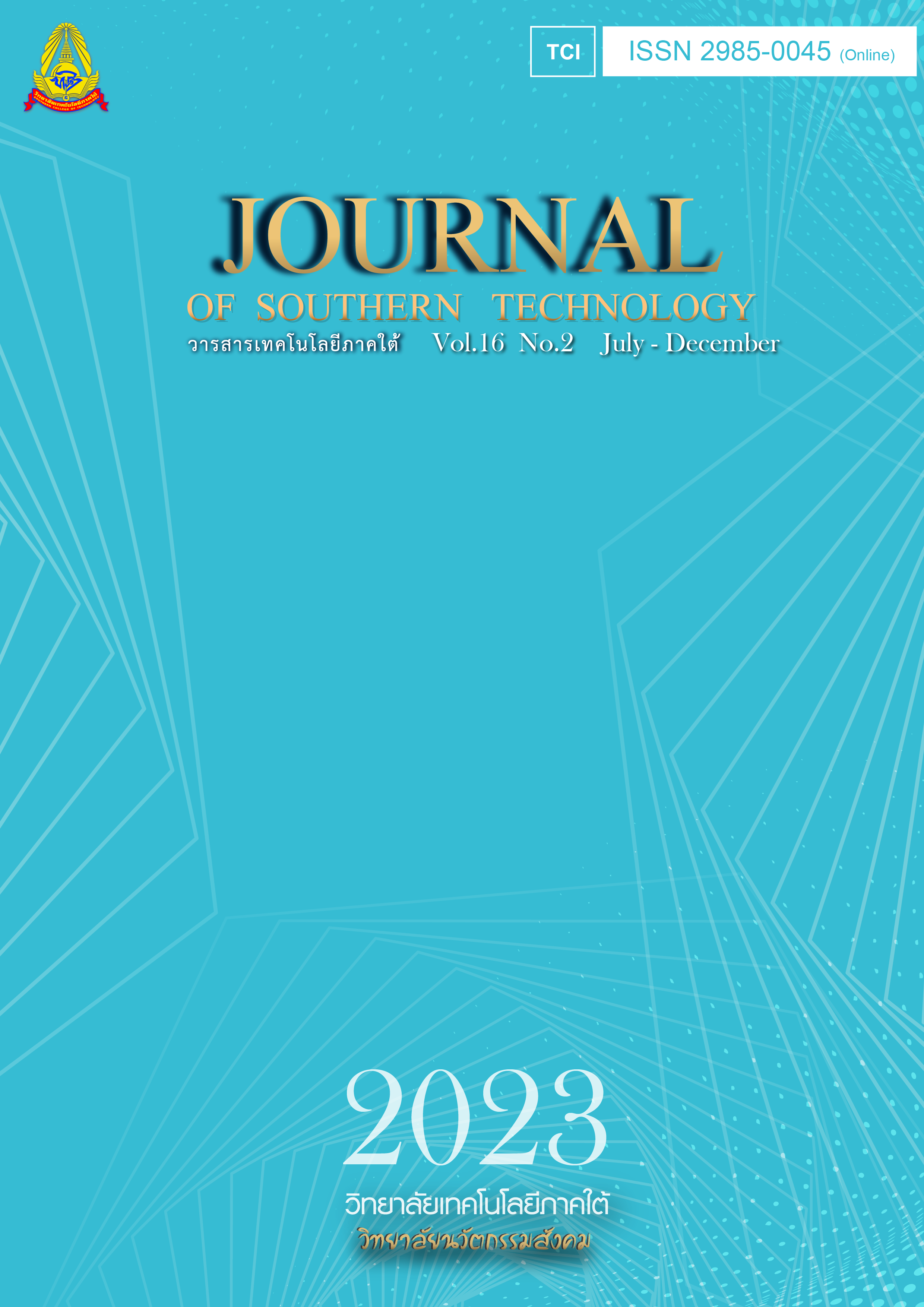Revitalizing English Education in a Post-Pandemic Learning Recession in a Private Religious School in Yala Province, Thailand: A Case Study
Main Article Content
Abstract
The COVID-19 pandemic had a detrimental impact on the learning outcomes of rural students in Thailand, leading educators to explore innovative ways to restore their learning conditions. To address the issue, teachers are adapting to the changing learning behaviors of students who spend excessive time on internet entertainment during online classes. In this study, we investigated the teaching method of an English teacher in a private religious school in Yala province who had switched to podcasts to improve the listening skills of students after instruction had returned to normal in the classroom. By examining the teacher's instructional practices, we aimed to understand the impact of utilizing podcasts as a digital tool, while also exploring students' perceptions of the teaching and learning management associated with podcast-based learning. The research used a mixed-method approach including observation, pre-test and post-test assessments, student satisfaction evaluation, and focus group discussion to answer the research objectives. Our analysis was based on data collected during the second semester (December 2022-January 2023) from 31 high school students in Mathayom 5 (Grade 11) of a private religious school in rural Yala Province, using mean, standard deviation, and t-test dependent samples. It was found that the teacher used a modern digital tool- a podcast to improve her students’ listening skills. However, the teacher's teaching style resulted in passive responses from classroom participants, with students becoming defensive. However, the study found that the difference in the scores of pre-and post-test achievements was found to be t = 18.32, which was statistically significant at the .05 level. Nevertheless, the qualitative data analysis indicates that the seriousness of the teacher in teaching led to a significant improvement in English listening skills after learning. Students who learned through podcast learning activities expressed high levels of satisfaction with the teacher’s podcast learning management (= 4.34, S.D. = 0.76). The study concludes that using podcasts can help reverse learning declines and stimulate student interest, but teachers should encourage student involvement and discussion of critical and constructive opinions.
Article Details

This work is licensed under a Creative Commons Attribution-NonCommercial-NoDerivatives 4.0 International License.
-
Authors must agree to the journal publication rules and allow the editors to edit the manuscripts for publication.
-
Author’s right belongs to the author but Journal of Southern Technology holds the right of first publication and thus allow readers to use the article for the purpose of education but not commercial.
References
Exelmans, L., & Van den Bulck, J. (2016). Bedtime mobile phone use and sleep in adults. Social Science & Medicine, 148, 93-101.
Doff, A., & Oxford, R. L. (1993). Listening. In Language Skills and Communication (pp. 205-220). Routledge.
Eady, M. J., & Lockyer, L. (2013). Tools for Teaching and Learning in the Digital Age. Pearson Higher Education AU.
Ellis, R. (2003). Task-based Language Learning and Teaching. Oxford University Press.
Freeman, S., Eddy, S. L., McDonough, M., Smith, M. K., Okoroafor, N., Jordt, H., & Wenderoth, M. P. (2015). Active learning increases student performance in science, engineering, and mathematics. Proceedings of the National Academy of Sciences, 112(23), 201423831.
Gay, G. (2000). Culturally Responsive Teaching: Theory, Research, and Practice. Teachers College Press.
Gonulal, T. (2020). Improving listening skills with extensive listening using podcasts and vodcasts. International Journal of Contemporary Educational Research, 7(1), 311-320.
Gunawan, M. H., Mandiri, I. C. P., Suherdi, D., Hanifa, E. S. D., & Gunawan, A. P. (2023). Exploring EFL students’ perceptions of the use of podcast/TED talk in extensive listening class. Indonesian EFL Journal, 9(1), 43-52.
Hattie, J., & Timperley, H. (2007). The power of feedback. Review of Educational Research, 77(1), 81–112.
Pinno, K., Khakitkosol, A., Attanatwong, A., & Chaisaeng, A. (2010). Enhancing EFL learners’ listening comprehension through strategy instruction embedded in EFL curriculum. International Journal of Humanities and Social Science, 1(14), 148-157. [in Thai]
Kirschner, P. A., & Karpinski, A. C. (2010). Facebook® and academic performance. Computers in Human Behavior, 26(6), 1237-1245.
Ladson-Billings, G. (1995). But that’s just good teaching! the case for culturally relevant pedagogy. Theory into Practice, 34(3), 159-165.
McCarthy, M., & O’Dell, F. (2008). English Vocabulary in use: Upper-intermediate. Cambridge University Press.
Osterman, K. F., & Kottkamp, R. B. (1993). Reflective Practice for Educators: Improving Schooling Through Professional Development. Corwin Press.
Putri, A. R., & Apriliani, A. (2023, March). Students’ perceptions of podcasts as a learning media to improve their listening skill. In Proceedings Virtual English Education Students Conference (VESCO) (Vol. 1, No. 1). http://ejournal.unsub.ac.id/index.php/vesco.
Roorda, D. L., Koomen, H. M. Y., Spilt, J. L., & Oort, F. J. (2011). The influence of affective teacher-student relationships on students’ school engagement and achievement: A meta-analytic approach. Review of Educational Research, 81(4), 493-529.
Schraw, G., & Dennison, R. S. (1994). Assessing metacognitive awareness. Contemporary Educational Psychology, 19(4), 460-475.
Stipek, D. (1996). Motivation and instruction. In D. C. Berliner & R. C. Calfee (Eds.), Handbook of educational psychology (pp. 85–113). Macmillan.
Wang, Q., & Chen, H. (2017). Improving English listening comprehension through interactive strategies: An action research study. English Language Teaching, 10(8), 1-10.

